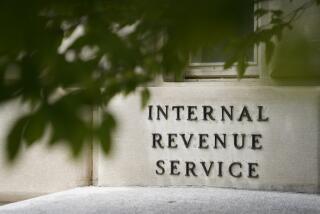NSA leaker Edward Snowden: He’s no Daniel Ellsberg

- Share via
Edward J. Snowden is “a low-level disenchanted punk,” says LA Observed’s Marc Lacter. In the New York Times, David Brooks notes that Snowden wasn’t very neighborly or much of a loving son to his mother. A front-page story Tuesday in the L.A. Times begins: “He was a high school dropout, sometime junior college student and failed Army recruit.”
It’s safe to say the focus of the debate over the National Security Agency’s massive electronic surveillance programs has shifted to the man who unmasked himself as the leaker.
This discussion will continue on Wednesday’s letters page, and most of the readers who have written so far take a more positive view of Snowden than the observations above. The letter likely to lead Wednesday, responding in part to this Times editorial, lauds Snowden as a “patriot of the highest order,” and others that probably won’t run in the paper offer similarly effusive praise. Few submissions leave much room for nuance.
POLL: Should Edward Snowden go to jail?
Another letter slated for publication Wednesday takes an unfavorable view of Snowden, but not in a way that suggests he should spend the rest of his life in jail -- and certainly not to the extent of politicians such as House Speaker John A. Boehner (R-Ohio) and Sen. Dianne Feinstein (D-Calif.), who have tarred him as a traitor. In my view, the letter deserves to be singled out not so much because it goes against the grain of reader opinion but because its criticism of Snowden is more nuanced than much of what we’ve seen so far in this invective-laced debate.
After defending the NSA’s surveillance programs, reader Randy Bednorz of Riverside departs from the conventional discourse on this subject; he takes issue with Snowden’s conduct in leaking the information, comparing his case to that of the Pentagon Papers in the 1970s. Wednesday’s paper features a shorter edit of Bednorz’s letter; here is a longer version:
“If someone had asked me 10 years ago whether the NSA had access to phone numbers and billing data, I would easily have assumed so. Just reading James Bamford’s books about the NSA makes that assumption easy.
“A phone number is just that: a number, not much different than someone’s street address. A computer by itself can create a table of all such possible numbers from known area codes. But to do the NSA’s detective work, it needs actual call dates, times, durations and the numbers called. The initial analysis doesn’t need names, other identifiers, text or voice content. Connecting the dots, we would probably find that a lot of calls involve numbers already published in your traditional phone books.
“While the nation’s top national intelligence officials are immensely worried that Snowden has done tremendous damage, the damage done can be attributed to the chicken-little frenzy created by Snowden’s so-called revelations. His “dialogue” should have been restricted to the congressional oversight committees. Daniel Ellsberg, the Pentagon Papers leaker who allowed himself to be arrested and prosecuted, has been too accommodating to Snowden in calling him a hero. Snowden skipped to Hong Kong before allowing Britain’s Guardian newspaper to reveal his name. Ellsberg gave the Pentagon papers to sitting U.S. senators first and foremost. He didn’t go running to the British media after barricading himself in a Hong Kong hotel.
“Yes, Snowden is a criminal whose skills and experience have been overcompensated -- likely through a bloated NSA contract. And I want to ask: Why does data access by some private cellphone provider’s staff leave you with a more acceptable sense of privacy?”
ALSO:
What killed the ‘Night Stalker’?
Fair trial for George Zimmerman
Poll: Should Edward Snowden go to jail?
More to Read
A cure for the common opinion
Get thought-provoking perspectives with our weekly newsletter.
You may occasionally receive promotional content from the Los Angeles Times.







